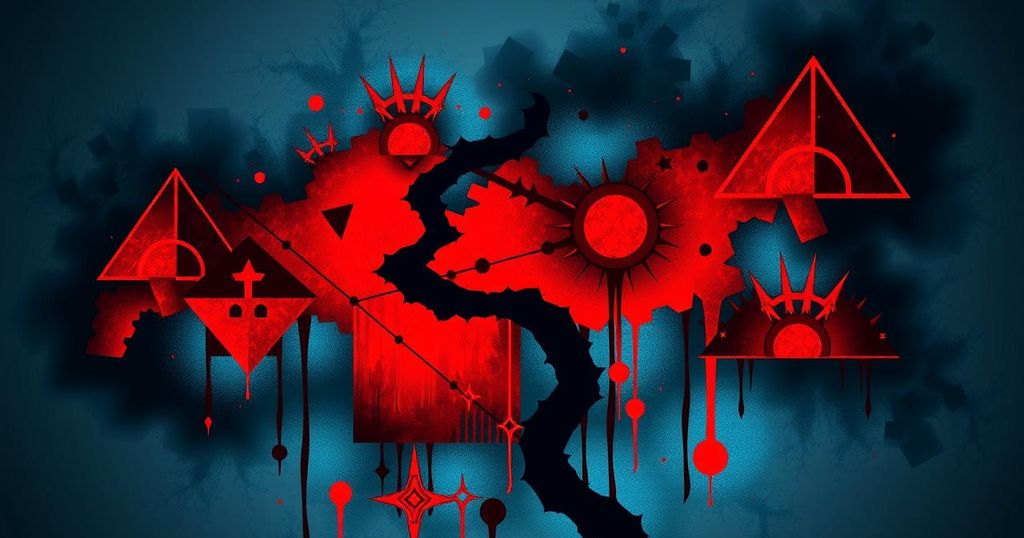World news
AFRICA, CANADA, DAVID LAMMY, DEFENCE MINISTRY, DPA, EUROPE, EUROPE/ASIA, GEOPOLITICS, GHANA, GNA, GNA PDC, INTERNATIONAL RELATIONS, MILITARY SUPPORT, MOSCOW, NORTH AMERICA, OLE, PUTIN, RUSSIA, RUSSIAN INVASION OF UKRAINE, UK, UKRAINE, VLADIMIR PUTIN, WAR, WESTERN SANCTIONS
Fatima Khan
0 Comments
UK Hits New Russian Targets with Sanctions Amid Ongoing Ukraine Conflict
The UK has imposed sanctions on 30 Russian targets to heighten pressure on President Putin amidst the Ukraine conflict. Prime Minister Starmer and Foreign Secretary Lammy confirmed these sanctions aim to obstruct Russia’s military capabilities. There is also a focus on tightening the oil price cap to diminish Russian oil revenues, while Ukraine seeks a ceasefire, but Russia shows little willingness to negotiate.
In a significant move, the UK has imposed new sanctions on Russia, targeting 30 additional entities to increase pressure on President Vladimir Putin amid the ongoing conflict in Ukraine. These sanctions come as part of a broader strategy displayed during the G7 summit in Canada, aimed at key Russian sectors, including financial, military, and energy.
Among those sanctioned are two UK nationals accused of running a clandestine network, said to be responsible for diverting over $120 million worth of electronics to Russia. These electronics are reportedly vital to Russia’s military operations. Additional sanctions include measures against a branch of the Russian Defence Ministry involved in underwater intelligence and dozens of oil tankers linked to supporting Russia’s energy sector.
Prime Minister Keir Starmer emphasized the impact of these measures, stating, “These sanctions strike right at the heart of Putin’s war machine, choking off his ability to continue his barbaric war in Ukraine.” He further remarked that while diplomatic efforts for peace are ignored by Putin, the UK will persist in tightening restrictions to safeguard national security.
Foreign Secretary David Lammy reinforced this sentiment, expressing the UK’s commitment to dismantling Putin’s maritime capabilities and bolstering Ukraine’s defense. He noted, “Today’s sanctions show we will systematically dismantle his dangerous shadow fleet, starve his war machine, and support Ukraine to defend itself.” This demonstrates a unified stance among allies to prevent further violence.
Moreover, the UK is in discussions with international partners to reduce Russian oil income by tightening the previously set oil price cap. In parallel, Ukrainian President Volodymyr Zelensky has expressed openness to a ceasefire and direct talks with Russia. However, there seems to be a lack of willingness from the Russian side to engage at this time.
These developments reflect the ongoing commitment of the UK and its allies to respond robustly to Russia’s aggression in Ukraine while exploring diplomatic avenues for peace. The latest sanctions underscore the urgency of the situation, as the conflict continues to escalate, with profound implications for both regional stability and international relations.
In summary, the UK has escalated its sanctions against Russia, targeting crucial sectors to exert more pressure on President Putin as the conflict in Ukraine persists. As Prime Minister Starmer and Foreign Secretary Lammy have both highlighted, the sanctions aim to disrupt Russia’s military capabilities and financial resources significantly. At the same time, Ukraine’s attempts for a ceasefire signal a willingness for dialogue, but negotiations remain stagnant due to Russia’s current stance. The situation is rapidly evolving, with national security at the forefront of the UK’s priorities.
Original Source: gna.org.gh




Post Comment